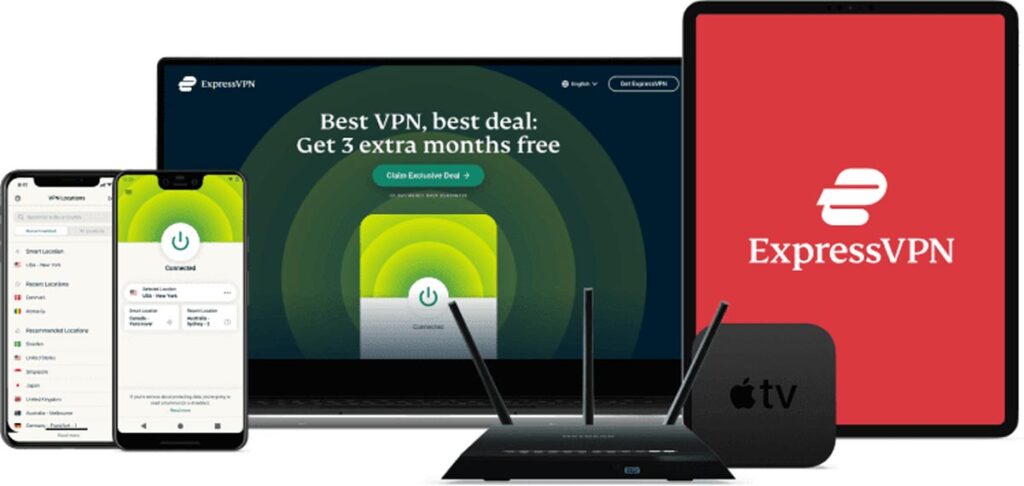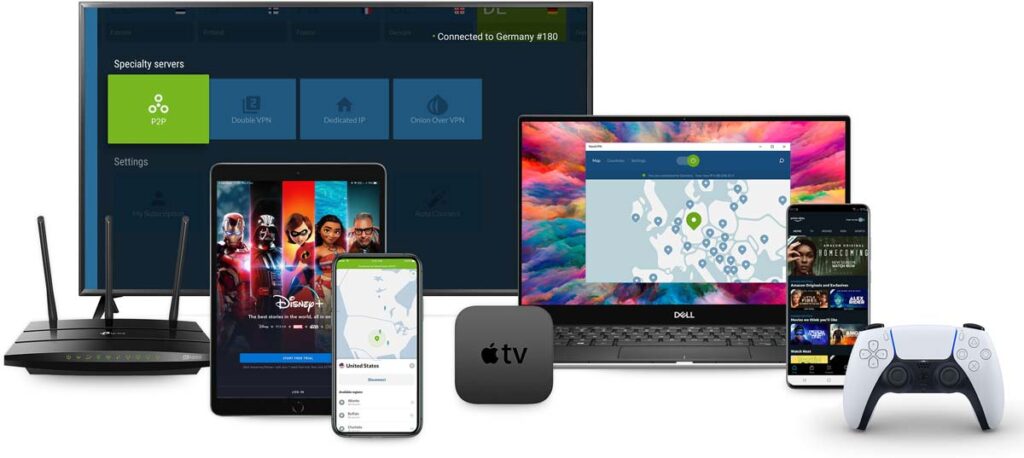Avoid Free VPN Scams – Get a Real VPN That Works In 2025

Free VPNs sound too good to be true—and for the most part, they are.
You search for “best free VPN,” click the top result, install it within minutes, and boom—you’re browsing anonymously. Or so you think.
Behind the scenes, that “free” VPN may be doing the exact opposite of what it’s supposed to: tracking your activity, injecting ads, logging your data, and even selling your personal information to third parties.
In a world where privacy is currency, using a shady free VPN is like handing your data to the very people you’re trying to hide it from. By the end, you’ll know exactly how to avoid the trap of fake “privacy” and choose a VPN that actually works. You will learn how to avoid free VPN scams and get a real VPN that works.
What Most People Don’t Know About Free VPNs
When something’s free, you’re the product.
Let’s be clear—running a VPN network isn’t cheap. It involves secure servers, bandwidth costs, developers, customer support, and compliance with privacy laws. So if a VPN is 100% free with no limitations, ask yourself: How are they paying for it?
🔎 Common Free VPN Scams & Tricks:
- Logging and Selling Your Data: Free VPNs often log your browsing history and sell it to advertisers or data brokers. Ironically, you’re giving them more access than your ISP ever had.
- Injecting Ads and Malware: Some free VPNs insert third-party ads into your web pages—or worse, sneak in tracking scripts and malware.
- Fake VPNs (Malware Disguised as Apps): Especially on Android and shady APK sites, some so-called “VPN apps” are just malware in disguise.
- Weak Encryption or None at All: A VPN that doesn’t encrypt your traffic is worse than no VPN at all. Some free VPNs use outdated or no encryption.
- Data Caps and Throttling: Many free VPNs cap data usage at 500MB/month or throttle speed, making them useless for streaming or daily use.
- No Transparency or Audits: Free VPNs rarely publish transparency reports or undergo security audits—because they have something to hide.
Real-World Examples of Free VPN Failures
These aren’t just theories—there have been multiple verified reports of free VPNs betraying users’ trust.
⚠️ Hola VPN Scandal
Hola was a popular free VPN that secretly turned its users into exit nodes in a botnet. Users’ bandwidth was sold without consent and used for potentially illegal activity.
⚠️ Facebook’s Onavo VPN
Marketed as a free VPN, Onavo was actually collecting user behavior data and sending it straight to Facebook—for advertising purposes.
⚠️ SuperVPN, GeckoVPN, and Others
In 2021, it was reported that over 21 million users had their data (emails, IPs, geolocation, device info) leaked by these free VPNs due to poor security practices.
Free VPN vs. Real VPN: Key Differences
| Feature | Free VPN | Real Premium VPN (e.g., ExpressVPN, NordVPN) |
|---|---|---|
| Encryption | Weak or none | AES-256 bit military-grade |
| No-logs Policy | Often vague or nonexistent | Strict & independently audited |
| Data Limits | Yes (500MB–2GB/month) | Unlimited |
| Speed | Slow / throttled | Fast with dedicated high-speed servers |
| Server Options | Limited countries | 60+ to 100+ countries worldwide |
| Customer Support | Rare or none | 24/7 Live Chat |
| Ad & Malware Blocking | No | Available with Threat Protection tools |
| Price | $0 upfront, high hidden cost | Starts around $2–3/month on long-term plans |
How to Spot a Free VPN Scam Before You Download
🔍 Do This Before Clicking “Install”:
- Check the Privacy Policy: Is it readable and clear? Or does it hide phrases like “we may share information with partners”?
- Google the VPN’s Name + “scam” or “data leak”: A simple search can reveal red flags, class action lawsuits, or data breach history.
- Look for Transparency: Does the VPN company publish independent security audits or transparency reports?
- Investigate the Developer or Company: Who owns the VPN? Some shady VPNs are owned by obscure firms with no transparency.
- See What Permissions the App Requests: Does it ask for access to contacts, SMS, or your camera? Huge red flag.
- Avoid VPNs Promoted Only on YouTube or Ads with No Real Reviews: Many scams rely on influencer shoutouts or flashy ads—always verify with legit tech sources.
Top 2 Real VPNs That Actually Work (And Are Worth Paying For)
If you’re ready to ditch shady free VPNs and upgrade to real protection, here are the best VPNs trusted by millions:
1. ExpressVPN – Best for Speed & Reliability

- 💰 Price: $6.67/month (12 months + 3 free)
- 🌍 Servers: 3,000+ in 105 countries
🔐 Highlights:
- Independently audited no-logs policy
- Lightway protocol for ultra-fast speeds
- Works seamlessly with Netflix, Hulu, BBC iPlayer
- TrustedServer tech (RAM-only servers)
- 24/7 customer support
- Based in British Virgin Islands (privacy-friendly)
2. NordVPN – Best for Security and Features

💰 Price: $3.69/month (2-Year Plan + 3 months free)
🌍 Servers: 7,100+ in 110 countries
🔐 Highlights:
- Double VPN & Onion over VPN
- Built-in ad and malware blocker (Threat Protection)
- Meshnet for secure remote networking
- NordLynx protocol for top performance
- Based in Panama (no data retention laws)
How to Switch from Free VPN to a Real One (Quick Start Guide)
- Pick Your VPN: Based on your needs—speed, budget, features—choose one from Get ExpressVPN Now, NordVPN, or Surfshark.
- Visit the Official Website: Use the verified link to avoid fake versions. Activate the discounted long-term plan.
- Download & Install: Install apps on all your devices—laptop, phone, tablet, Smart TV, router, etc.
- Log In and Connect: Choose a server location and click “Connect.” You’re now browsing securely.
- Uninstall the Free VPN: Completely remove the free VPN to avoid conflicts or background tracking.
The Hidden Risks of Free VPNs
Subsections:
- They Sell Your Data: How free VPNs monetize your information
- They Log Everything: No-logs claim vs actual behavior
- Insecure Encryption (or none): Exposing users to MITM attacks
- Fake VPN Apps: Malware disguised as VPNs
- Ads, Injectors & Trackers: How they compromise your experience
- No Customer Support or Accountability
👉 Include real-world stats (e.g., 20+ million users affected by SuperVPN/GeckoVPN leak in 2021)
FAQs
Are all free VPNs unsafe?
Not all, but most come with trade-offs. Some reputable VPNs offer free limited versions (like ProtonVPN or Windscribe), but they have strict caps or fewer features. Always read the privacy policy.
Can a free VPN steal my data?
Yes. Many free VPNs log your activity, sell your data, or even act as spyware. It’s one of the biggest risks of using unverified services.
What’s the safest VPN to use?
Top names like ExpressVPN, NordVPN, and Surfshark have proven track records, independent audits, and strict no-logs policies. They’re consistently ranked among the most secure.
What’s wrong with using a VPN app I found on the Play Store?
Many free apps with high ratings are manipulated with fake reviews. Look beyond stars—check ownership, privacy policies, and real tech reviews before trusting it.
Can I try a paid VPN before committing?
Yes! Most premium VPNs offer 30–45 day money-back guarantees, so you can try them risk-free.
Final Thoughts: Don’t Settle for “Free” When Your Privacy’s at Stake
When it comes to VPNs, free often comes at the highest cost—your data, your privacy, your security.
A good VPN doesn’t just hide your IP. It protects your digital life, unlocks content worldwide, and gives you peace of mind. And in 2025, getting a real VPN doesn’t mean breaking the bank—thanks to limited-time deals offering up to 70% off.
So skip the shady free apps, and invest in protection that actually delivers.
👉 Get a real VPN that works—and stop gambling with your privacy.